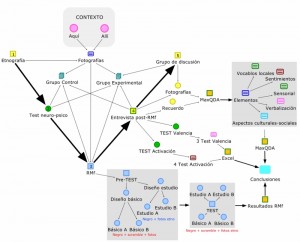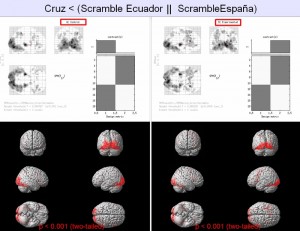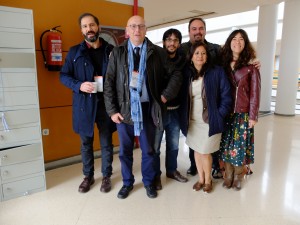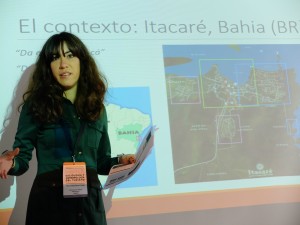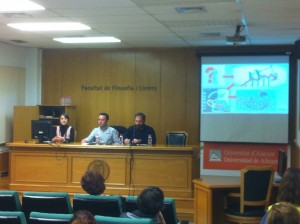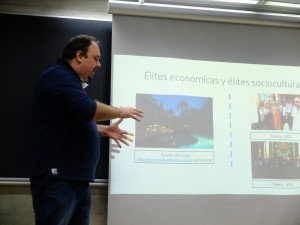Bitácora
Cuando la precariedad se convierte en norma
CULTURDES en el II Congreso Internacional de Sociología y Antropología del Turismo
CULTURDES ha tenido una amplia representación en el II Congreso Internacional de Sociología y Antropología del Turismo que se ha celebrado en la Universidad de Alicante los días 1 y 2 de marzo de 2018.
El profesor Dr. Antonio Miguel Nogués ha formado parte del comité organizador del Congreso y ha coordinado, junto con el profesor Dr. Raúl Travé Molero (The Ostelea – School of Tourism & Hospitality) el grupo de trabajo “Teoría y metodología de la investigación social aplicada al turismo“. Así mismo, el profesor Dr. Daniel Carmona Zubiri ha participado como coordinador el grupo “Turismo y patrimonio cultural“.
Hemos presentado también sendas investigaciones en forma de comunicaciones:
- José Martínez Jurado y Mercedes Durá Lizán. “El espacio turístico como mediador de los procesos de (re)significación en el campo del patrimonio cultural”
- Mercedes Durá Lizán, Raúl Travé Molero y José Martínez Jurado. “Comunicación y participación política en Itacaré, Bahia (Brasil)”
- Mercedes Durá Lizán
- Daniel Carmona
- José Martínez-Jurado
(Español) Estancia en la Universidad de Teramo
Participación en el 8º Colóquio Internacional Filosofia e Ficção: Tenda dos milagres: saberes na diferença
Taller sobre investigaciones etnográficas en patrimonio cultural – CRIA – FCSH – Lisboa
El investigador predoctoral José Martínez Jurado participa en el Workshop Etnográfico «Património ao desafio», organizado por el CRIA – Centro em Rede de Investigação em Antropologia en la Faculdade de ciências sociais e humanas de la Universidade Nova de Lisboa. El taller cuenta con la participación de prestigiosos investigadores Maria Cardeira da Silva (CRIA/NOVA FCSH), Cyril Isnart (IDEMEC/CRIA) y Marta Prista (CRIA/NOVA FCSH).
Porque el Patrimonio nos invita a mirar lo que exhibe, descuidamos muchas veces todo aquello que, al mismo tiempo, oculta. Y aun el interés académico que ha recibido en los últimos años parece sucumbir a su poder de atracción. Este breve taller pretende retomar, desde cero, cuestiones que dejamos de plantear cuando trabajamos sobre el Patrimonio. Las primeras cuestiones serán lanzadas sobre la base de breves episodios de estudios etnográficos en curso, cuyos autores, aunque reconocen la elocuencia de sus objetos, no quieren rehenes de su opacidad.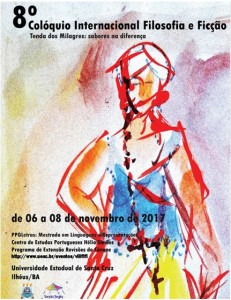


Workshop Etnográfico «Património ao desafio»
Cartaz Workshop EtnográficoCartaz Workshop EtnográficoCartaz Workshop Etnográfico
(Español) El uso de la cultura como recurso para el desarrollo: una mirada etnográfica al arte indígena de Tigua en Ecuador
Nueva doctora: Dra. Cristina Soler García
The research member of Culturdes, Dra Cristina Soler García, has obtained her PhD after presenting the dissertation: «El uso de la cultura como recurso para el desarrollo: una mirada etnográfica al arte indígena de Tigua en Ecuador», with the qualification of sobresaliente con Mención Europea. The thesis has been supervised by Dr. Antonio Miguel Nogués Pedregal.
The Committee was chaired by Prof. Dr. Jeremy MacClancy (Oxford-Brookes University), and Dr. Daniel Carmona Zubiri (Universitas Miguel Hernández) as secretary, and the members Dr. Agustín Santana Talavera (Universidad de la Laguna), Dra. Marta Prista (Centro em Rede de Investigação em Antropologia – CRIA en Lisboa) and Dr. Raúl Travé Molero (Ostelea School of Tourism & Hospitality – Madrid).
Abstract: This doctoral thesis is an ethnography on the relationships among the ideas Culture, Heritage and Development in Ecuador. The ethnographic study analyses how these relationships materialize and are staged through the patrimonialisation and use of cultural elements (iconographies) of the aboriginal peoples of Ecuador as the way to innovate the contemporary artisan sector in a development project. Conceptualising Heritage as a social field –in Pierre Bourdieu’s sense—the interests and positions of national agents (public institutions, non-governmental entities, and ethnic groups) and international actors (international cooperation agencies) are studied. The analysis unveils how the ideas Culture and Heritage are conceptualized in relation to the idea Development, as well as it explains the artificiality of the patrimonial creation process. This perspective allows understanding the cultural practices of appropriation carried out by the social agents, specifically those related to the group of indigenous artists from the Tigua area, in the central region of Ecuador. These artists are worldwide known for their paintings and other handicrafts currently produced for the international market.
The analysis of the social practices of use, re-signification, and legitimation of these heritage elements carried out by these indigenous artists illustrates how the construction of the idea Authenticity is produced and how the tourist market is not only present but also becomes a mediator in the production of meanings that lead to the idea Identity. Finally, the ethnographic descriptions of these practices of appropriation lead us to the aim of this thesis: the study of the processes of construction of meaning that guarantee the continuity between the representations of the memory of a group through the patrimonial resource and their present and future aspirations. Bourdieu’s concept of field applied to Heritage clarifies the network of relationships around heritage production and management, and also shows how the cultural is used as a resource during the existing symbolic disputes over the type of society, the vision of the World and our self-identities.
Turismo sostenible, ¿cómo y para quién?
II International Conference of the ICSR Mediterranean Knowledge Mediterranean Cultures and Societies
«De la cultura al cerebro y viceversa. Bitácora de una exploración en neuroantropología»
